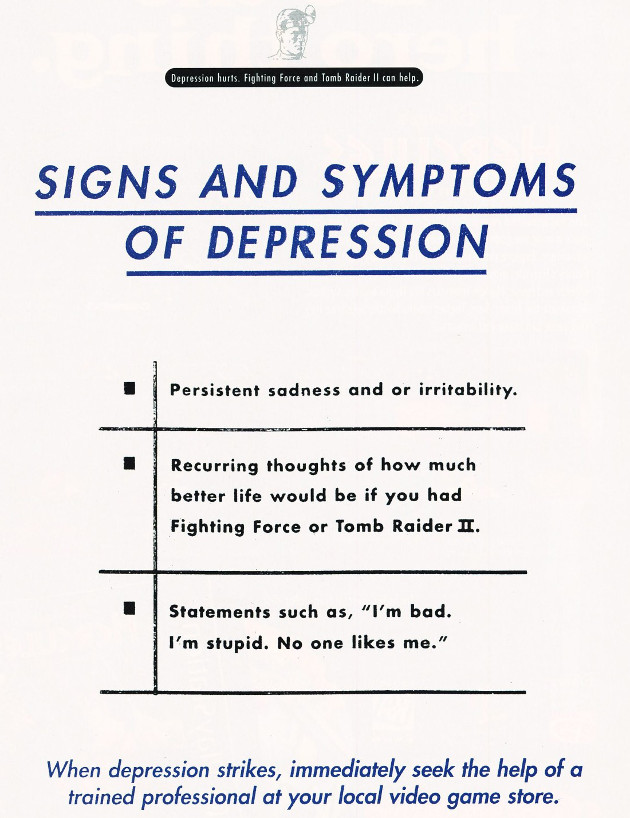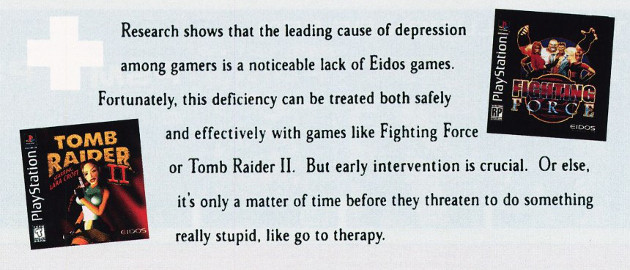Eidos Mocked Depression in This 1998 Ad
Most of the time, 1998 doesn’t feel like it was that long ago. Sure, it was a world that had never seen The Sims or Call of Duty, but my hobbies and interests back then were pretty close to what they are today. I obsessed over cartoons, spent way too much time on the Internet, and played all the video games I could get my hands on.
But when I look back at old advertisements, like this old ad from Eidos, 1998 feels as though it was an entirely different world.
At first glance, the ad seems slightly offensive, but not completely shocking. The butt of the joke is clearly depression advertisements, not depression sufferers, and while it’s fairly tasteless, it doesn’t cross the line completely.
But it quickly devolves from lighthearted parody into outright mockery. The second page features a teary-eyed gamer and his “wiping secretions,” and warns that gamers who don’t get Eidos titles might “do something really stupid, like go to therapy.”
Retrovolve’s Josh recently pointed out another eyebrow-raising ad, in which a gamer describes his bus-shooting fantasies. While the ad is jaw-dropping, it’s easy to understand why it would fly in 1998 and not today: It went print more than a year before Columbine forced people to take threats of school shootings and gun violence seriously.
But what changed our views on depression? Why were cracks about teary-eyed gamers more acceptable then than they would be today? Some might point the finger at political correctness, but I think the real answer is more complicated.
The Internet was around in 1998, but it was a far cry from the lightning-fast network of networks that we have today. Google was still in beta, most people were stuck with obnoxiously slow dial-up connections, and many didn’t have a computer — or an Internet connection — at all.
As the Internet grew, so did our ability to communicate. In an instant, we could connect with complete strangers, sharing information with people we’d never have to face in real world. The security of anonymity gave people the courage to open up about things they’d never been willing to share before.
When Eidos approved that ad, I don’t think their intention was to hurt people struggling with depression. To them, depression sufferers were a fictional, faceless entity, something they’d never had to encounter in the real world. They probably never considered that they were poking fun of actual people, let alone some of the gamers they were trying to target.
For better or worse, the Internet has pushed our deep dark secrets into the limelight. It’s shown us that pain often lurks behind a happy exterior, and that no one is ever as alone as they think they are.
These days, advertisers know that they’re not just targeting cookie-cutter demographics. Their ads are aimed at real people who may be hurt by the things they say or jokes they make. And while it may make for fewer shocking ads, I can’t help but think that’s a good thing.



This is a really thoughtful and fascinating analysis. It begins an interesting train of thought…that the Internet shines a light on problems that were once impersonal and faceless.